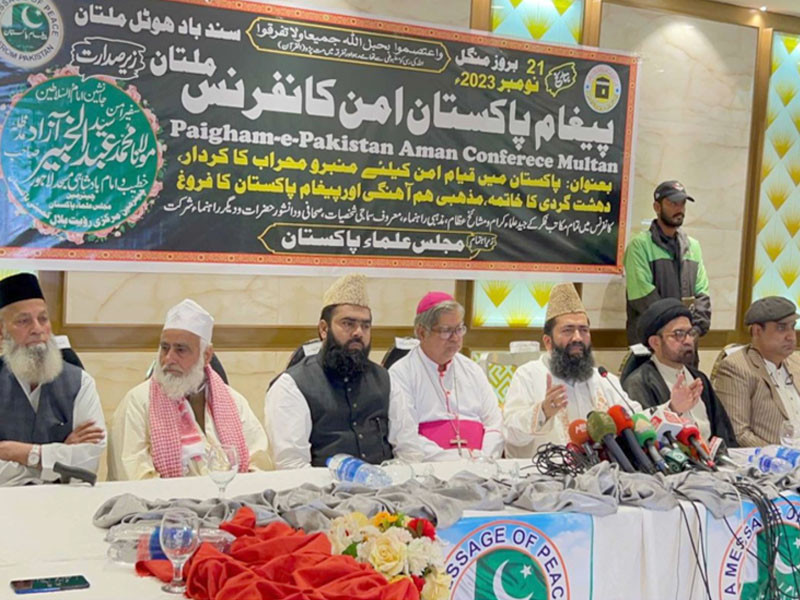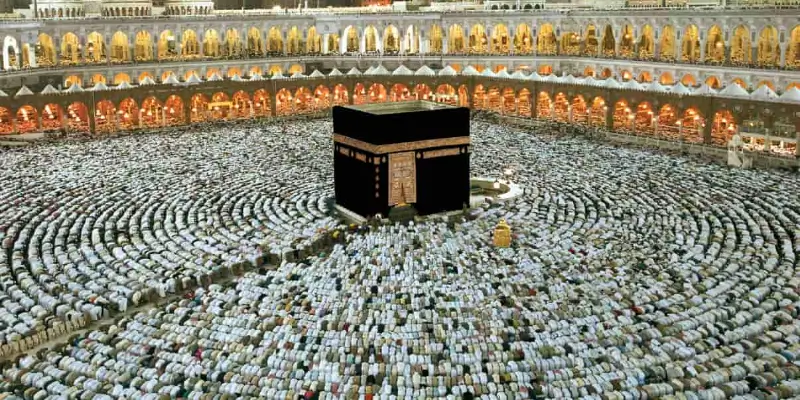Maulana Syed Muhammad Abdul Khabir Azad, Chairman of Ruet-e-Hilal Committee Pakistan and Majlis-e-Ulema Pakistan, emphasised the crucial role of scholars in fostering communal harmony and building a violence-free society.
Recognising the strength of national institutions, he highlighted Army Chief General Syed Asim Munir’s commitment to promoting Islamic values and unity within the Muslim Ummah.
He was addressing the media on the occasion of the Message of Pakistan Peace Conference convened in Multan on Tuesday, organised by Majlis-e-Ulema Pakistan. Held at the Sindbad Hotel, the conference focused on the pivotal role of the pulpit and mihrab in fostering peace, ending terrorism, promoting religious harmony, and amplifying the core message of Pakistan.
He underscored Pakistan as a divine blessing established on the order of Allah and rooted in the principles of Kalima Tayyaba. He acknowledged the sacrifices of millions of lives that led to the formation of Pakistan, emphasising the joint responsibility of scholars and the entire nation in promoting the foundational message of Pakistan.
Highlighting Multan as the city of saints and the land of lovers, Maulana Azad affirmed Pakistan’s unity against any attempts to sow discord. Addressing the nation’s collective resilience, he underscored the need to thwart the cunning tactics of enemy powers and maintain national unity. The grand narrative of Pakistan, disseminated through minbars and mihrabs, played a pivotal role in eradicating terrorism, extremism, and sectarianism.
Read also: Religious leaders vow to promote harmony
Maulana Azad highlighted the scholars’ unequivocal support, as expressed in a meeting with Pakistan’s Chief of Army Staff, General Syed Asim Munir, for eliminating sectarianism, terrorism, and extremism. The sacrifices of Pakistan’s armed forces and national security agencies were acknowledged, with a call for continued unity to safeguard the nation.
Condemning Israel’s atrocities in Palestine and Gaza, Maulana Azad called for international intervention. He urged the United Nations, the OIC, and the European Union to play a pivotal role in securing an immediate Israeli ceasefire. Addressing the dire humanitarian situation, he pleaded for open routes for food, medicine, and aid to Palestine and Gaza, emphasising the urgency of alleviating the suffering of innocent civilians.
The conference saw the participation of eminent figures representing various schools of thought, distinguished sheikhs, and prominent social personalities. Notable speakers included Maulana Pir Masood Qasim Qasmi, Bishop Yusuf Sohoon, Maulana Abdul Haq Mujahid, and many others, collectively addressing pressing issues facing Pakistan and the broader Muslim Ummah.





